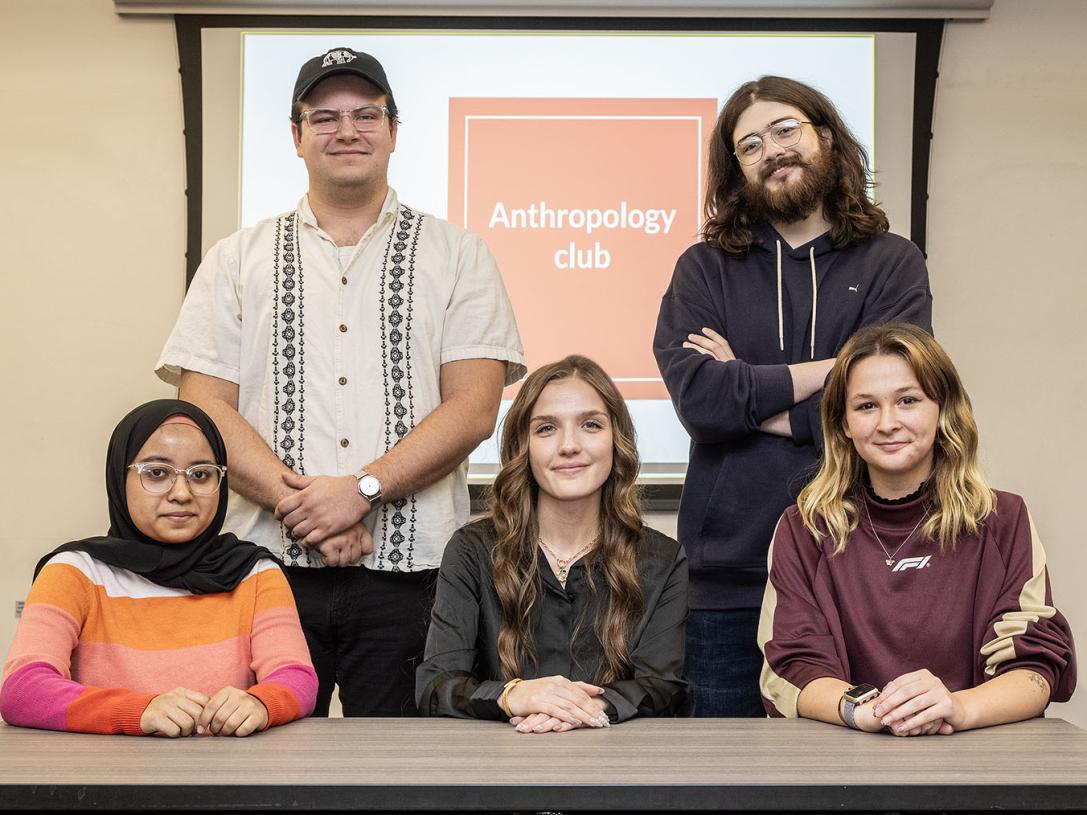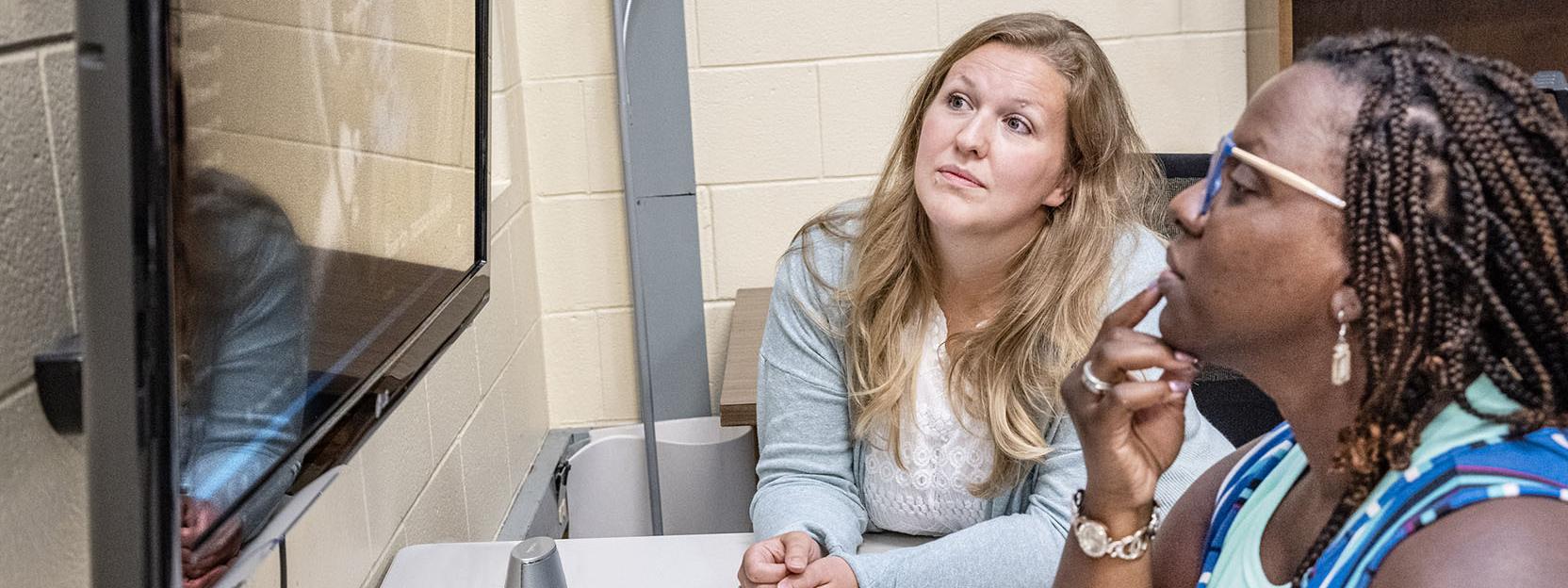
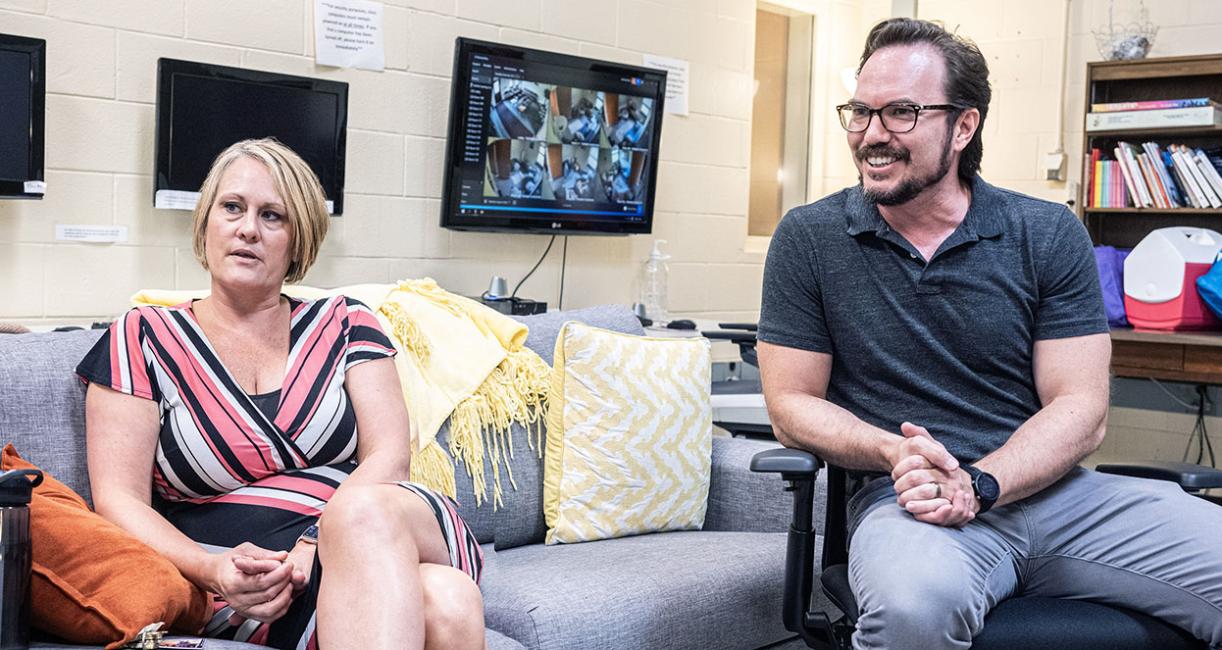
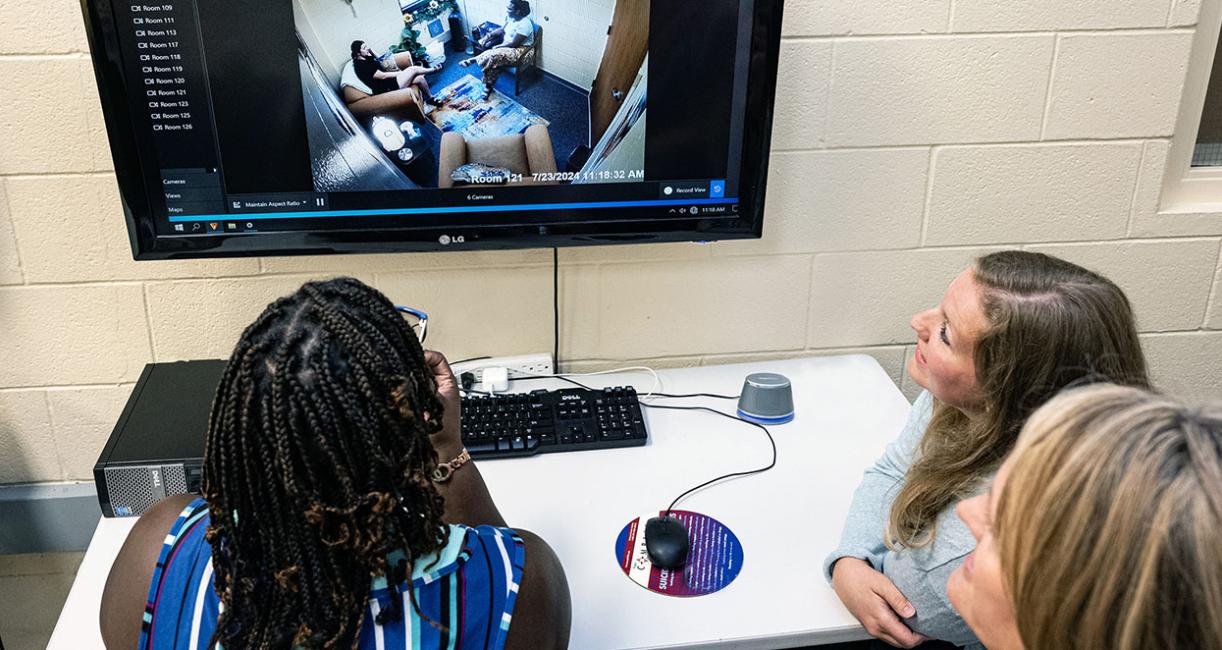
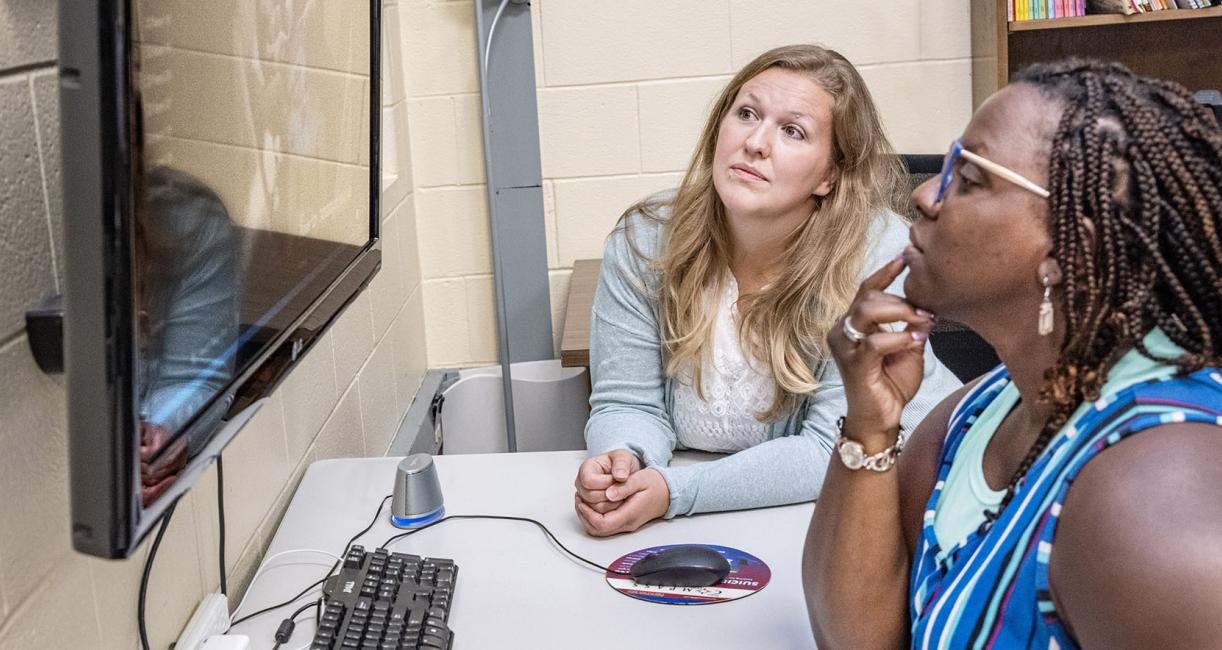

Brooke Sellhorn and Brett Wilkinson

Observing a counseling session.

Observing a counseling session.



Grad students gain experience, build confidence through Community Counseling Center
By Blake Sebring
August 8, 2024
The Community Counseling Center at Purdue University Fort Wayne has two main goals. The first is training graduate students in the counselor education program in the Department of Counseling and Graduate Education by providing them with a year of real-world experience. After an introductory year of classes—before heading into the community for their internship—second-year graduate students meet with three clients for up to 12 months each. It’s a transformative experience for students, and hopefully the clients.
“Going into practicum this last year, I think I wasn’t sure I had what it took,” said Shawyna Chase. “I think having the supervision I had and being able to try new things and be with clients was really helpful to finding my voice and who I wanted to be as a counselor.”
It's not surprising to hear most students suggest they have little idea what the experience will be before encountering it, but that changes through actual practice.
“Coming in, I was nervous,” said Ariel Appel. “We had a lot of the knowledge we had been learning, but putting it in action takes it to the next level, which is very important as you’re figuring out who you want to be as a counselor. It’s been a lot of self-discovery, getting comfortable, and gaining confidence to go out in the field.”
Started during the 1990s, the Community Counseling Center’s second objective is to provide free mental health services to the community. In addition to caring for the needs of the general public, it has helped thousands of licensed mental health providers enter the field with experience and confidence. Many continue to recommend the center’s services.
Located in the Dolnick Learning Center on PFW’s North Campus, 30 students help an estimated 150–175 clients each year from school-age children to retirees, including singles, couples, and families.
There's a great deal of coaching involved. Brooke Sellhorn, the clinical director who runs the center, and Brett Wilkinson, its director of counselor education, game-plan approaches with students before sessions and have the option of stepping in to assist when needed. Students can also ask the supervisors questions during client breaks.
Sellhorn and Wilkinson supervise through online observation from another room in Dolnick. Session recordings are later reviewed with students individually and in group meetings with classmates. Five other faculty members teach practicum on a rotation with some other licensed professional counselors sometimes adding in.
“We have built a reputation in the community where they are aware we provide free services,” Sellhorn said, “and people know that our students provide good care. It’s a good option.”
Over the last decade, the program received both state and national accreditation and has earned two national and nine statewide awards of excellence.
Clients requiring a higher level of care are referred to other local providers.
Most graduate counseling programs offer a two-year course of study, Wilkinson said. That practicum experience is included with the internship during the second year, unregulated by the university or faculty.
“You are trained for a year, and you go out in the field and figure it out,” said Wilkinson, an associate professor who has been with PFW since 2016 and director of the center since 2021. “What makes this program great is that when they go out in the field, every internship site in the Fort Wayne region knows students coming out of PFW are the best-trained students around.”
Students are also supervised by Sellhorn during their internship. She has been at PFW since 2018. Other faculty involved with teaching and supervising internships include Kerrie Fineran, interim associate vice chancellor for student wellness; Joel Givens, assistant professor of counselor education; Jim Burg, associate professor of education; Aileen Tierney, assistant professor; and Wilkinson.
About 50% of applying students are accepted into the program; approximately 30% are PFW graduates.
“I genuinely believe that every counseling education program in the country should be using this model,” Wilkinson said. “Any that aren’t are doing a disservice to their clients in the field and to their students.”
Students describe the second year as vital in helping them understand if this work is what they are meant to do before being thrown into internships.
“I really can’t imagine having to start an internship and go out into the field without practicum experiences,” Appel said. “it’s been the most valuable part of this experience. I do feel ready, and definitely prepared.”
And, as Chase said, program graduates have an advantage over most graduates entering the field with two years of real client experience, not just a single internship year.
“Being authentic is the biggest part,” Chase said. “Having those layers to be confident with myself is the reason why it all went so well.”
